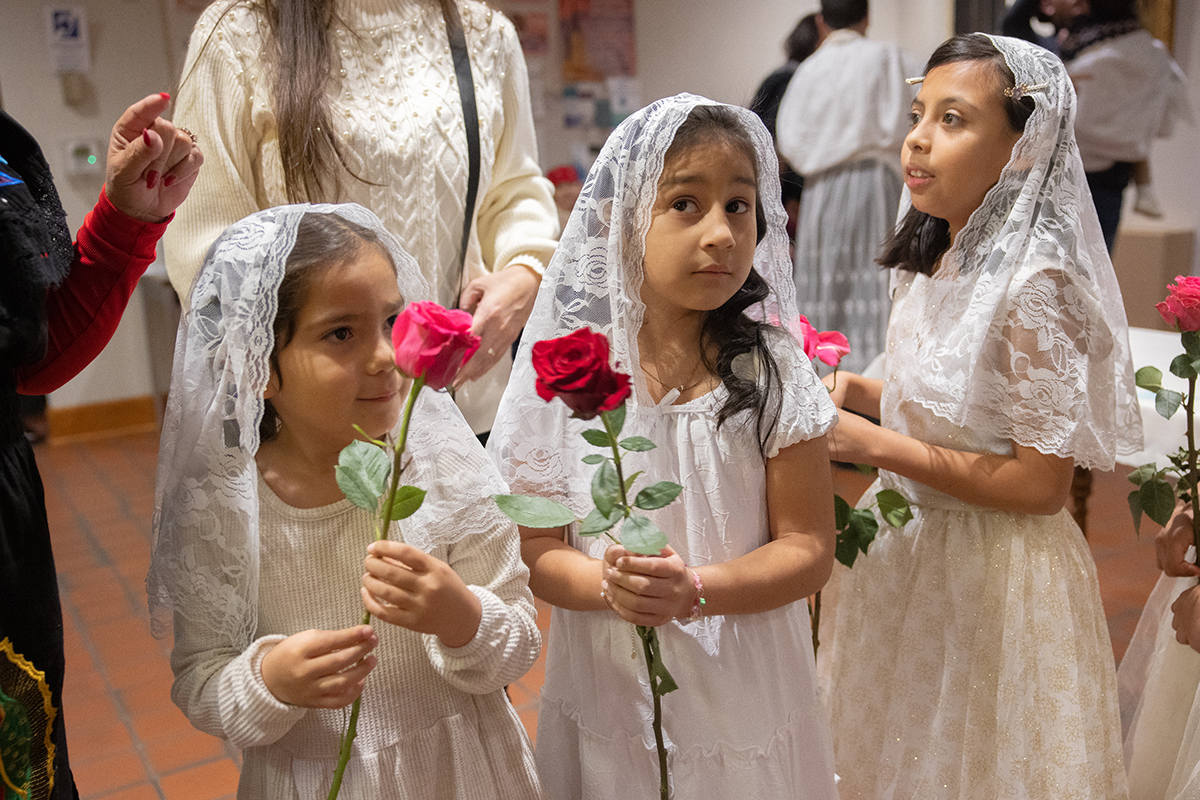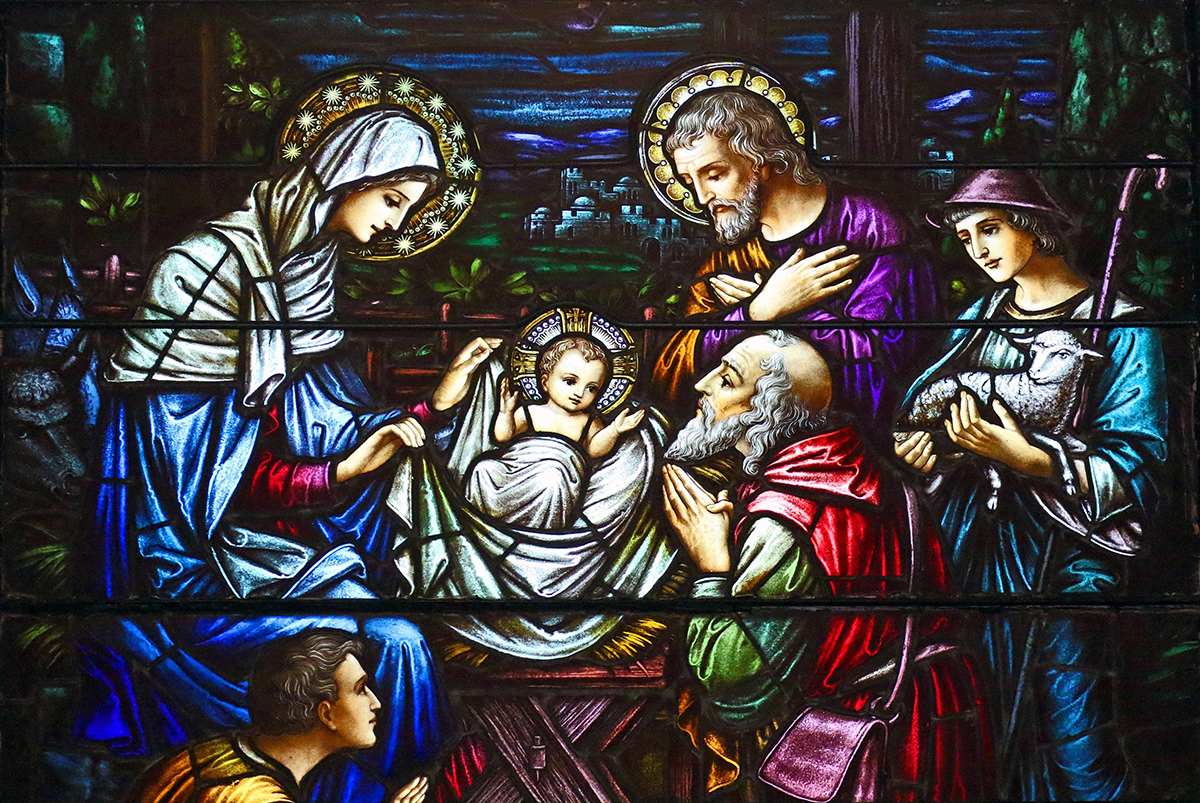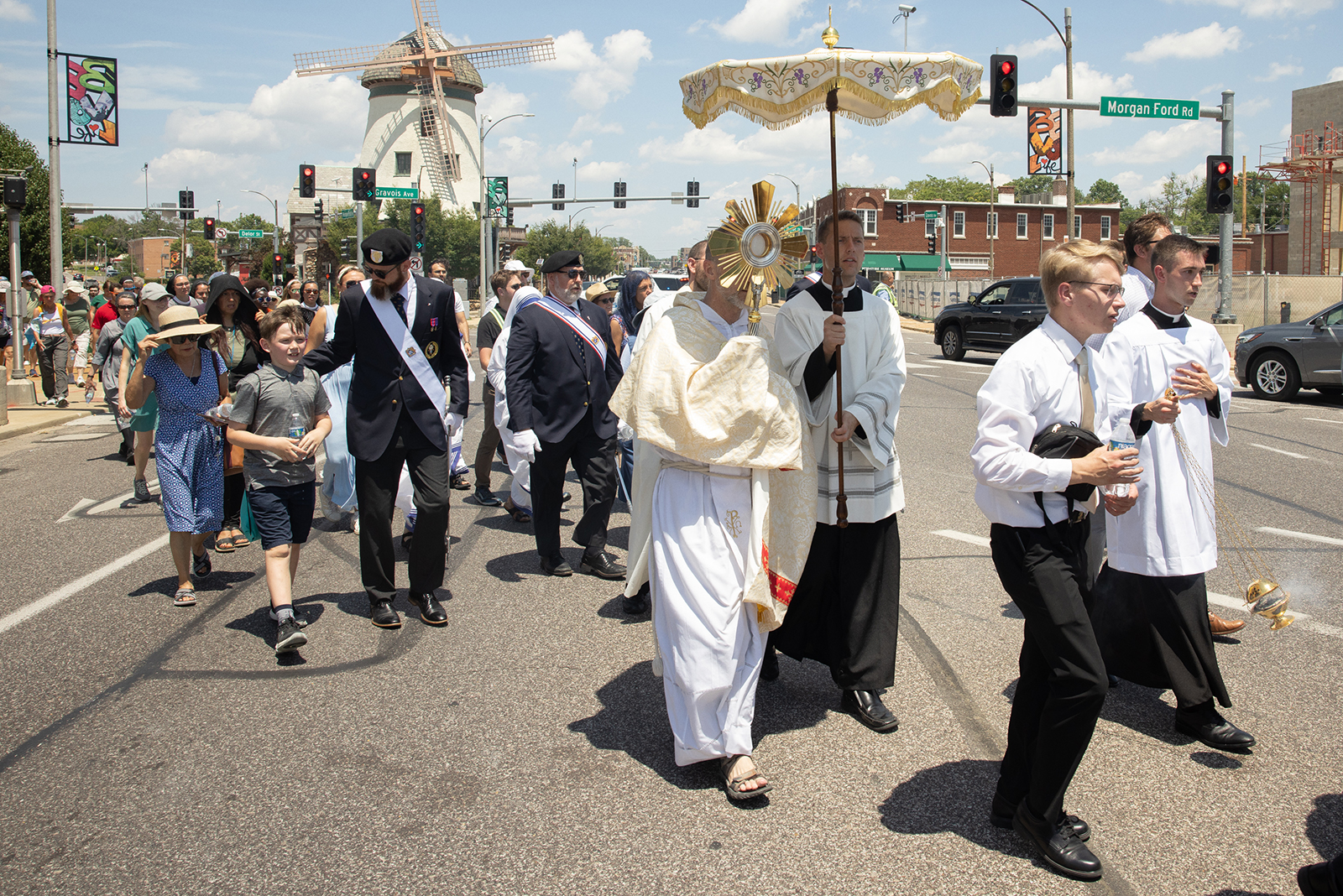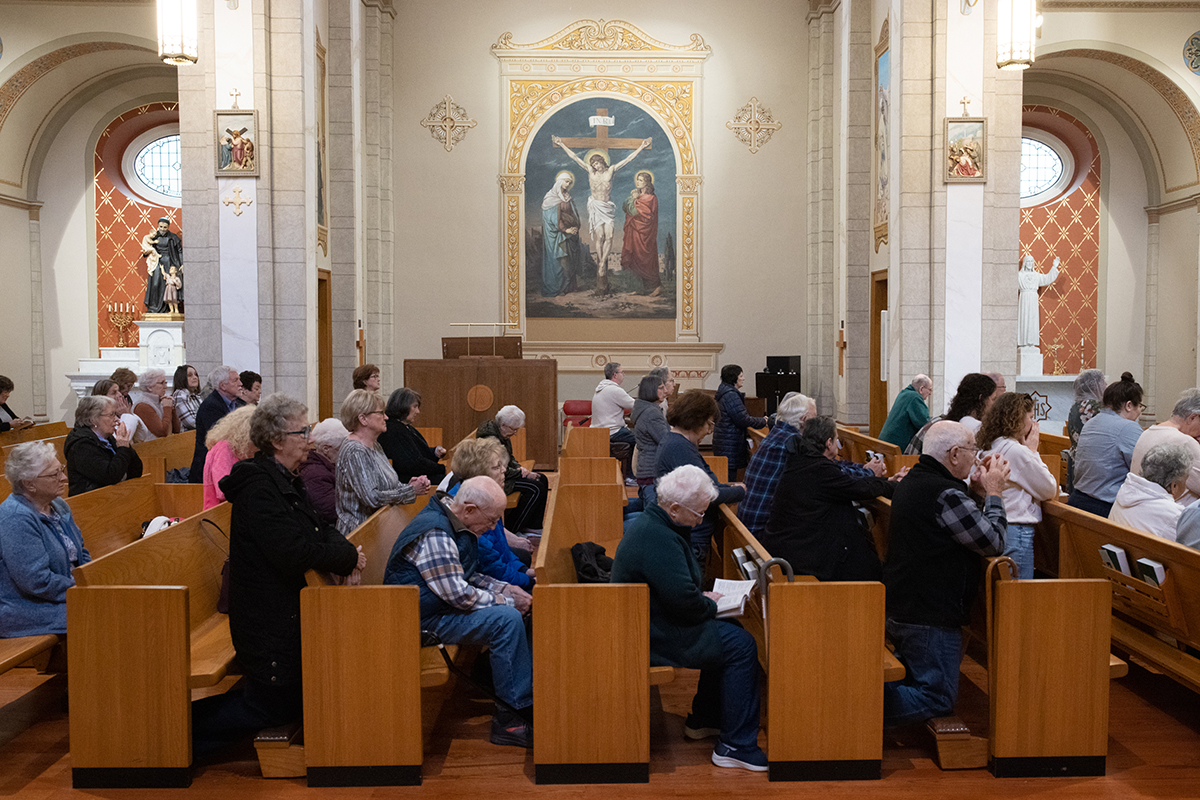U.S. bishops’ “Faithful Citizenship” guides Catholic voters ahead of elections
Document focuses on forming conscience to shape voting choices
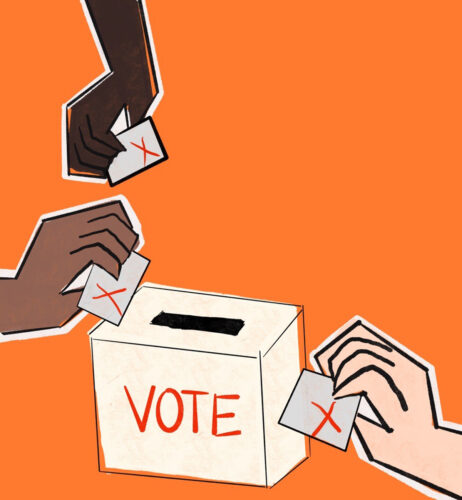
As elections approach, Catholics are reminded of our call to promote the common good and, as far as possible, to take an active part in public life — including voting.
Missouri voters will head to the polls on Aug 6. for primary elections to vote for federal, state and local candidates to appear on the November general election ballot. They will also decide two statewide ballot measures regarding property tax exemptions for childcare providers and the legislature’s ability to increase minimum funding for a police force established by a state board of police commissioners.
To help Catholics sort through the ballot issues and their choices for public offices, the U.S. bishops offer guidance in their election document, “Forming Consciences for Faithful Citizenship: A Call to Political Responsibility.”
The document doesn’t tell Catholics how to vote but how to “form their consciences, apply a consistent moral framework to issues facing the nation and world, and shape their choices in elections in the light of Catholic social teaching.”
It has been offered as a guide to Catholic voters every presidential election year since 1976. It has typically been updated and revised at four-year intervals to reflect changes in the country’s issues. However, in 2022, the U.S. bishops voted to instead add a new introductory note and five additional bulletin inserts and reexamine the document after the 2024 election.
“This document is not based on personalities or partisanship, the latest news cycle, or what’s trending on social media,” the introductory note says. “Instead, it reflects the perennial role of the Church in public life in proclaiming timeless principles: the infinite worth and dignity of every human life, the common good, solidarity, and subsidiarity.”
Missouri 2024 primary election
When: Tuesday, Aug. 6. Polls are open from 6 a.m.-7 p.m.
What: Voting for federal, state and local candidates to appear on the November general election ballot, as well as decide two statewide ballot measures. To view your voting location and see a sample ballot, visit voteroutreach.sos.mo.gov/portal/
For more frequently asked questions about the Aug. 6 election, visit the Missouri Secretary of State’s website: www.sos.mo.gov/elections/goVoteMissouri/electionday#2_5
The first part of the document outlines Catholics’ responsibility to incorporate Catholic teaching into their voting decisions and support for the myriad public policy issues confronting society.
Part two outlines the bishops’ policy positions on numerous issues. Topics addressed include human life and dignity, promoting peace, marriage and family, religious freedom, economic justice, health care, migration, Catholic education, promoting justice and countering violence, combating unjust discrimination, care for the environment, communications, media and culture, and global solidarity.
It takes time to form our consciences so that we can make well-reasoned judgments about particular, real-life situations. The Church teaches that it is important to work continually on conscience formation so we can be prepared to make decisions whenever the opportunity arises. Some specific ideas to form your conscience are:
Part three lists goals for Catholics’ participation in political life, whether they are citizens, candidates or public officials. Notably, it invites Catholics to assess moral and ethical questions emanating from public policy issues. It also lists nine goals for Catholics to weigh in public life.
“Faithful Citizenship” also draws from the teachings of Pope Francis, Pope Benedict XVI, St. John Paul II, St. John XXIII, the Second Vatican Council and the “Compendium of the Social Doctrine of the Church.”
In 2019, the USCCB Department of Justice, Peace and Human Development introduced the Civilize It campaign (civilizeit.org) as part of an effort to remind people that civility in political discussions is a virtue. The campaign’s cornerstone is a three-part pledge that individuals can take to respect civility, to root political views in the Gospel and a well-formed conscience, and to encounter others with compassion. It also includes resources on skills for loving dialogue and prayers for unity.
Forming your conscience
The Catechism of the Catholic Church states, “Moral conscience, present at the heart of the person, enjoins him at the appropriate moment to do good and to avoid evil. It also judges particular choices, approving those that are good and denouncing those that are evil. It bears witness to the authority of truth in reference to the supreme Good to which the human person is drawn, and it welcomes the commandments. When he listens to his conscience, the prudent man can hear God speaking” (CCC 1777).
The USCCB’s “Forming Consciences for Faithful Citizenship” resources offer these guidelines for forming your conscience:
- Begin by being open to the truth and what is right.
- Study Sacred Scripture and the teaching of the Church.
- Examine the facts and background information about various choices and be discerning in where we gather information.
- Prayerfully reflect to discern the will of God.
- Additionally, it is important to consider how our community of faith can help us form good consciences through some of these steps:
- Seek the prudent advice and good example of trusted leaders and others to support and enlighten our conscience.
- Learn about the authoritative teaching of the Church.
- Pray for the gifts of the Holy Spirit to help us develop our conscience.
- Regularly partake in an examination of conscience to hear God’s voice in your life.
>> Read the document – To read the full “Forming Consciences for Faithful Citizenship” document and the additional inserts, visit stlreview.com/3ytJ5Qz
The abortion ballot initiative
More than 380,000 signatures were delivered to the Missouri Secretary of State May 3 in support of a proposed amendment to alter Missouri’s constitution to create a right to legal abortion. Supporters needed to collect signatures from at least 8% of legal voters in six of the state’s eight congressional districts, meaning a minimum of 171,592 valid signatures. The Secretary of State’s office distibuted copies of the signatures to local election authorities to verify signatures. Once signatures are verified, the Secretary of State will determine whether there are enough valid signatures to place the petition on the ballot for the November general election.
The archdiocesan Respect Life Apostolate is encouraging Catholics to join in intentional prayer to defeat the ballot initiative through the 140 Prayer Days for Life campaign, ongoing through Election Day on Tuesday, Nov. 5. The faithful are invited to sign up for a day to pray for that intention before Jesus in the Blessed Sacrament.
“We start with prayer, which then gives us the strength and the grace and the wisdom to do the right action, to get involved to work for life, to work for justice, to work for peace in a space that is often very divisive,” Respect Life Apostolate director Mary Varni said.
Sign up for 140 Prayer Days for Life: stlreview.com/3WtFdHc
Prayer to Defeat the Missouri Pro-Abortion Ballot Initiative: stlreview.com/3y7pw0A
Five things you can do now to save the preborn and empower Missouri women: stlreview.com/4fr4FGg
Missouri Catholic Conference resources and updates on the ballot initiative: mocatholic.org/abortion

